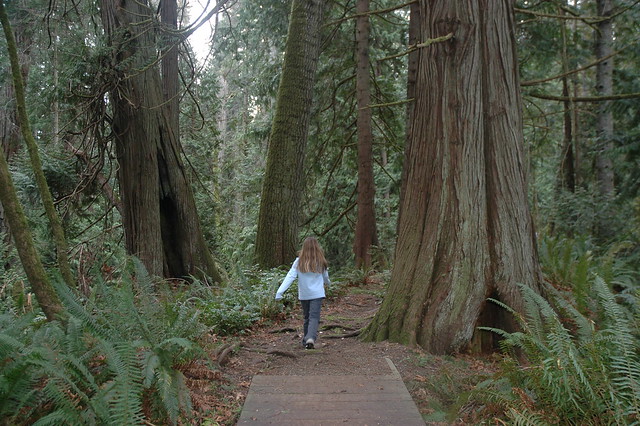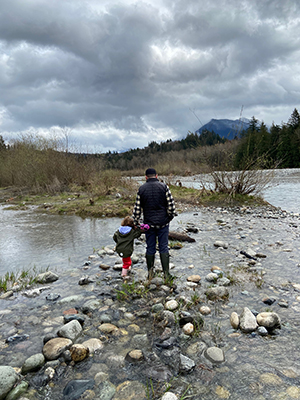UFV researchers studying how COVID-19 crisis impacts physical activity and mental well-being
 As people all over the world retreat to their homes to do their part to flatten the curve of the COVID-19 virus pandemic, they run the risk of fattening their own curves.
As people all over the world retreat to their homes to do their part to flatten the curve of the COVID-19 virus pandemic, they run the risk of fattening their own curves.
Fitness routines have been disrupted. You can no longer go to the gym, or to the pool for a swim. Parks and playgrounds are closed. You can’t make your usual yoga, spin, or IHIT class.
Sports leagues are paused. Pickleball courts and beach volleyball pits are out of bounds. Events such as the Vancouver Sun Run and BMO Marathon are cancelled.
Yet at the same time, physical activity remains important. It provides both physical and mental health benefits. Fortunately, walking, running, and cycling outside are still allowed, as is indoor exercise in your home.
Two researchers from UFV’s kinesiology department, Dr. Iris Lesser and Carl Neinhuis, along with colleague Dr. Lisa Belanger from the University of Calgary, are hoping to find out how people are adapting their fitness activities to this new restricted reality.
You can take the Life in Lockdown survey online at: https://www.surveymonkey.com/r/covid19active
The idea for the Life in Lockdown study came to Lesser as she was pondering how the sudden societal shift in lifestyles resulting from physical distancing and the shut-down of many exercise options would affect our physical and mental wellbeing.
“Having recently studied the impact of outdoor physical activity on anxiety in cancer survivors, I wondered how our current mental struggles might be aided by increased physical activity in outdoor environments,” Lesser says. “Through this study, we want to measure how COVID-19 is impacting our physical activity behavior and mental well- being. We also want to study whether those who are engaging in more outdoor physical activity may be faring better than those who are not.”
Neinhuis was keen to partner with Lesser in the study because he is interested in the psychological impact of the sudden move to physical distancing and primarily staying at home.
“I have been reflecting on the psychological and emotional shifts that people are experiencing during this time,” he says. “Personal well-being is complex and multi-faceted. Lots of people are lonely and feel disconnected right now, and engaging in physical activity, especially outdoors with or without others, may offset some of that turbulence. In addition, we want to study how physical activity interacts with social activity and social connection.”
 Both Lesser and Neinhuis are doing their best to keep themselves and their families active during the COVID-19 crisis.
Both Lesser and Neinhuis are doing their best to keep themselves and their families active during the COVID-19 crisis.
“I am 12 weeks pregnant and pushing a 40-pound preschooler while running in a stroller along the river has been keeping me more than fatigued,” Lesser notes. “I’ve also branched out a bit from some of my typical exercise behavior and have been doing more online exercise classes to break up the weight-bearing exercise.”
Neinhuis has been literally including his children in his workouts.
“I haven’t been able to lift weights or play squash, so I’ve been lifting my children instead. Thankfully, between all five of them, I have a range of 35 lb to 110 lb options. It makes for a pretty dynamic split lunge and bench press circuit.”
In addition to the survey study, Lesser is looking for participants to work with her students in an online clinical exercise therapy class this summer. Students will be looking to work with a clinical client (someone with a clinical condition such as hypertension, diabetes, hypercholesterolemia, obesity). Students will work with their clients on behavior change and counselling, developing an exercise program, and implementation and revision of the program.
Contact Dr. Iris Lesser at iris.lesser@ufv.ca if you are interested in participating as a client.




